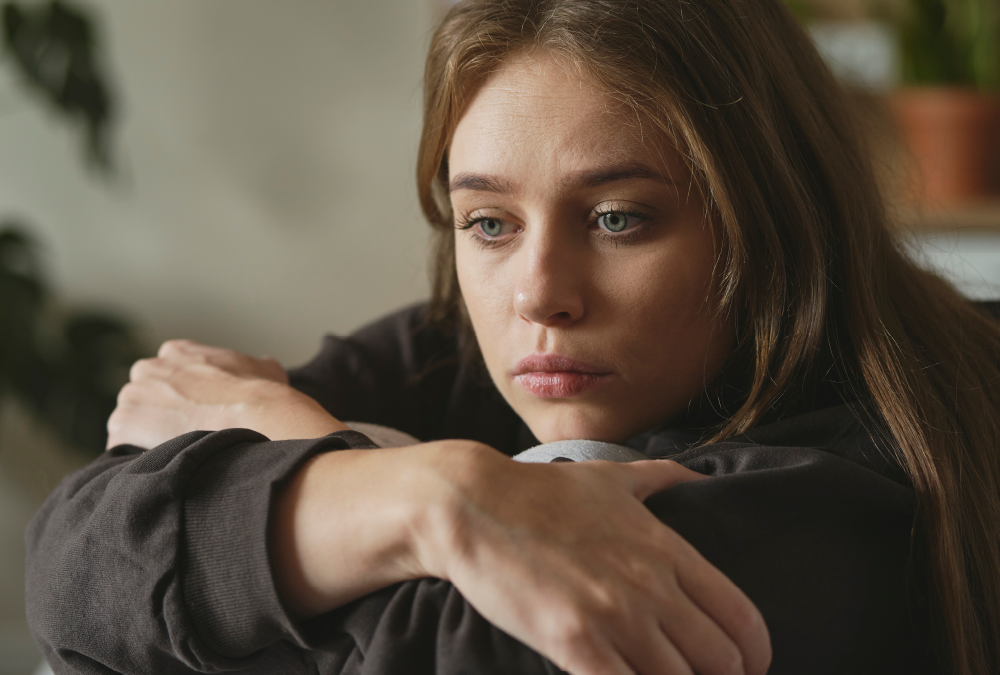our blogs
Current Post

Why are they fine, but I’m not?
Angela Austin, LPC
Counselor, Insight Clinical Counseling and Wellness, LLC
A natural disaster, a war zone, a school shooting, a car crash, witnessing police brutality, a worldwide pandemic, a train derailment….
If you’ve been through something like this – we all have – and your observation of yourself and how you’re responding is a far cry from how you observe your friend, spouse, neighbor or coworker responding, rest assured there’s nothing wrong with you. There’s nothing wrong with them, either. ‘Cause here’s the thing: there really is no right or wrong way to respond. (Now, if you or someone you know is causing harm to themselves or others as their way of responding, then we need to work to figure out healthier, less harmful ways of responding.) But, if you’re having daily meltdowns, are crying, feeling angry, frustrated, or afraid to leave your home (or go home at all!), while the person you see seems to be going about life as usual, there’s nothing wrong with any of that.
There’s no one right way to process or experience a traumatic event. While one person may come away from an event or experience feeling traumatized and harmed, which is valid, another person may come out of the same experience unharmed and unaffected, which is also valid.
There are several factors that will contribute to the way someone experiences and processes trauma or potentially traumatic events.
- Life experience – within this contributing factor, there are a million more small and not so small contributors. It’s helpful to invite ourselves never to assume we understand all of what someone’s life experiences have offered them or taken from them. Even within a family or partnership, everyone’s experiences are their own, leading to very individual and unique ways of experiencing potentially traumatic events.
- Resilience – Webster’s dictionary defines resilience as, “the ability to recover from or adjust easily to misfortune or change.” Every one of us has differing abilities to handle the bends and twists and troubles of life, and none of those varying abilities are wrong; just different.
- Support systems – we all have varying levels of support systems, from family to friends, from therapists to faith practices. People around us may be processing trauma with the help of others, while some feel and are far more alone.
These are just a few of the reasons why and how we may not be experiencing a traumatic event the way others are – can you think of other reasons?
One more thing to consider is that perhaps we’re all just seeing what’s on the surface – what someone is willing to present to the world. It’s not uncommon that someone else is suffering silently, behind closed doors and we just assume they’re “fine.” For that reason, perhaps we can choose kindness and compassion for others and ourselves, no matter the face they or any of us show the world.
If you’re in need of increased support, please know that you are never alone. We, at Insight, are here for you to meet in-person or virtually, offering you a space to process all those big feelings, uncertainties, and questions.
Latest Posts

What is OCD and How Do We Treat It?
When we hear that someone has an obsessive-compulsive disorder (OCD) diagnosis, we often think this means they are very clean and like to wash their hands! Although these symptoms can be true for some individuals experiencing OCD, this is also a very limited perspective. First, let’s break this down by getting into the obsessions, then the compulsions, how they work together and lastly, what OCD treatment looks like.

Coercive Control: The Hidden Domestic Violence
When most people hear about intimate partner violence (IPV), thoughts of physical abuse usually come to mind. However, another insidious form of abuse, coercive control, is often overlooked since the scars are not always visible. Some coercive controllers are physically violent, while others are not.

You Don’t Have to be a Monk to ‘Meditate’
So many of my clients have shared with me that meditation (mindfulness) coping skills ‘Don’t work for me!’ or ‘They make my anxiety worse!’ or ‘I could never sit and think about nothing!’ Maybe you can relate? For most of us, when we think of meditating, we think of a monk sitting cross legged on the floor experiencing a state of quiet and focus. Honestly, that’s what comes to my mind too.
Our Locations
Request Appointment
Contact

Copyright © 2025 Insight Clinical Counseling & Wellness, LLC. All Rights Reserved.

Our Locations
follow us
Instagram
Facebook
LinkedIn
